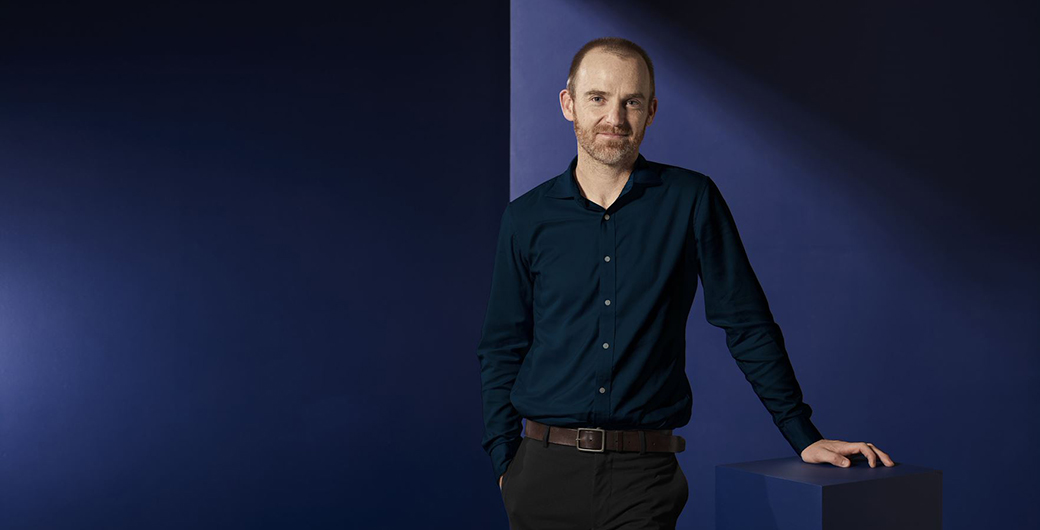ANZSOG’s Executive Master of Public Administration strengthens Dan Craig’s public service leadership
16 July 2020
● News and media
A year-and-a-half into his ANZSOG Executive Master of Public Administration (EMPA), Dan Craig is certain his decision to commit to the program has already brought value to the Victorian public service.
“I reckon the Department of Education and Training has already had a return on investment from my participation through the networks I have built and the problem-solving that comes from that,” Dan said.
“Cross-department collaboration is really valuable and the return on investment is significant. In my program, things are happening faster because of a relationship I have built with someone in the Department of Health and Human Services.”
Dan, who joined the public sector as a graduate in Canberra in 2006, now manages the Kindergarten Reform Implementation Division, Early Childhood Education Group for the Victorian Department of Education and Training. He is part of the team responsible for developing and implementing a $5 billion government commitment to universal three-year-old kindergarten across the state.
“I was working as a barman and cricketer in the UK and I got a call with a job offer at the Commonwealth Department of Agriculture, Fisheries and Forestry,” Dan said.
“I genuinely believe in the public service and I wanted to spend my time trying to help improve things for the average punter.”
Three years later, Dan joined the Victorian public service in Melbourne. Last year he enrolled in the EMPA with the support of his manager to help him think more broadly about policy challenges and improve as a public servant.
While he said the shift to online learning had been a challenge, ANZSOG had worked hard to ensure its students felt part of a team.
“The thing I’ve enjoyed most about the experience is the cohort and getting to know my peers and building up my network. It’s great having people across government who are nice, helpful, smart and who you can work with on policy issues that relate to your patch,” Dan said.
“I’ve probably got 10 or 20 good contacts across Victoria now – one or two in every department – where I can pick up the phone and call them and say, ‘I’ve got this problem who should I talk to?’ I find myself calling people a lot more than I thought I would. I’ve learnt a lot from my cohort.”
Dan said his studies had particularly encouraged him to consider how to frame issues and challenges in different ways, which allowed him to find different solutions.
He is currently completing a work-based project considering ways of commissioning health services to better include Aboriginal self-determination.
“I think a lot more deeply about problems. It used to be: ‘I’ve got a problem and here’s the policy response’. Now I think: ‘How should I talk about the policy issues? What sort of language should I use? What sort of narrative should I use when talking to different people? It’s a different way of thinking.”
That way of thinking considers the bigger picture, including ways to build coalitions and partnerships, how best to communicate and how to influence decision-makers.
Conversations about leadership also have proved useful and Dan has found himself thinking more deeply about what sort of leader he is and the team he needs around him to best support that. It has also helped him think critically about his own manager, and to work more effectively to support her.
The EMPA also gave him a valuable opportunity for self-reflection.
“I find my job challenging and I find life very busy. It is nice to go away every few months and take a breath and think about something academic and get out of the day-to-day. It’s a good way to stop and pause and reflect. How is your team is going? How is your project is going? As a leader, you don’t get much opportunity to reflect.”
Another highlight was the calibre of presenters and staff – former and current ministers, academics and senior public servants, including department secretaries.
“ANZSOG is really good at bringing together the academic literature and people with lived experience,” he said.
“We had Richard Wynne, the Victorian Minister for Housing, who was really great and gave us a unique insight into being a minister. Richard talked to us about the cladding crisis and his experience with that. It’s a senior cohort that can be trusted to have open and frank discussions you wouldn’t see elsewhere. It’s cool to have those chats.”
Dan believes the EMPA has helped him to take a longer-term view.
“I don’t just think about the here and now, I think about the strategic risks and opportunities on the horizon,” he said.
“ANZSOG has helped me to understand the operational challenges and to link them to strategic risks. It has helped me to think more about the continuity of early childhood development from maternal and child health, to supported playgroups to three-year-old kinder, to four-year-old schools as a continuum.
“They are related because each one has to build on the other. It is an early-childhood development continuum and we are doing better at drawing the links between all of these programs and making sure they all work together. The EMPA has helped with that.”
Find out more about ANZSOG’s Foundation Programs
Executive Master of Public Administration (EMPA)
A part-time postgraduate qualification developed and delivered by ANZSOG exclusively for high-performing public sector managers.
Executive Fellows Program (EFP)
A three-week program challenging senior public service executives working in the public domain to develop new leadership perspectives in a contemporary and highly interactive setting.
Towards Strategic Leadership (TSL)
A unique two-week program that helps public service leaders develop the qualities needed to thrive in a senior executive role: a strategic outlook, political astuteness, personal resilience and the capacity to reflect and learn continuously.
